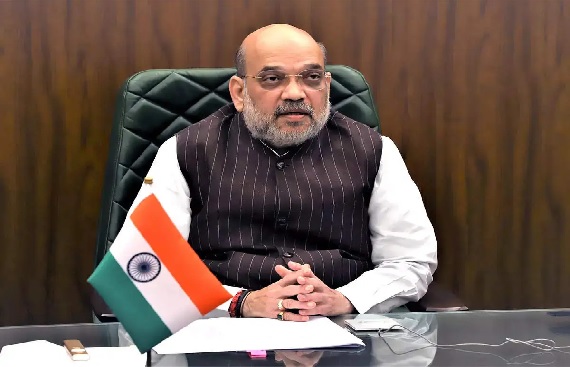Amit Shah Launches National Cooperative Policy 2025 for Grassroots Growth

- Policy aims to establish at least one cooperative society in every village across India by 2047.
- Target to triple the sector’s GDP contribution and bring 500 million citizens into the cooperative fold.
- Cooperatives to expand into taxi services, insurance, green energy, and tourism with profit-sharing and tech-driven frameworks.
Union Home and Cooperation Minister Amit Shah on Thursday launched the National Cooperative Policy 2025 in New Delhi, terming it a historic step that will ensure the achievement of Viksit Bharat by 2047. The policy will provide massive scale employment opportunities, allow inclusive growth, and integrate more than 500 million citizens into the cooperative space, with emphasis on villages, agriculture, rural women, Dalits, and tribals.
Addressing the launch, Shah added that the mission of the policy is to encourage professional, transparent, tech-savvy, accountable, and economically independent cooperative units with the lofty aim of having at least one cooperative society per village.
“This is a major step towards fulfilling Prime Minister Narendra Modi’s vision of ‘Sahkar Se Samriddhi’ (prosperity through cooperation),” Shah noted. He reminded the audience that India’s first national cooperative policy was launched in 2002 under the Atal Bihari Vajpayee government, and now in 2025, the second policy has also come under a BJP-led government.
Also Read- India, Singapore Sign MoUs on Digital Technology and Semiconductor Cooperation
With a decided goal of transforming India into the world's third-largest economy by 2027, Shah highlighted the importance of cooperatives in facilitating inclusive economic growth for 1.4 billion people. He further stated that the establishment of the Ministry of Cooperation in 2021 was a turning point and conformed to India's post-75th Independence vision.
The policy, according to Shah, is aimed at making cooperative institutions inclusive, future-oriented, and professionally managed and opening up humongous employment and livelihood opportunities, especially in rural India. By 2034, the policy hopes to:
- Triple the cooperative sector's share of the GDP
- Enroll 50 crore active members in the cooperative movement
- Link youth with entrepreneurial and employment opportunities
In only four years, the cooperative sector has equaled the corporate sector in priority status, tax advantages, and access to development funds. Formerly a dying sector in 2020, it's now being recognized as a future-proof driver for inclusive growth," Shah insisted.
The policy was developed by a 48-member national committee headed by ex-Union Minister Suresh Prabhu, and involves members from cooperative federations, societies from various sectors and states, concerned ministries, and academic specialists.
In the future, Shah declared that cooperatives will be ventured into new areas such as taxi services and insurance by the end of 2025, with straight profit-sharing models in favor of stakeholders such as drivers and small entrepreneurs. A grading system at the village level, on the basis of data analysis, has been launched to ensure equitable growth across states and sectors and avoid regional differences in cooperative development.
No panchayat will be left behind," Shah said, confirming again that the roadmap is customized for 21st-century mid-century challenges, such as venturing into tourism, green energy, and other new sectors.
Main objectives of the policy are:
- A 30% rise in the number of cooperative societies across the country
- Opening at least one cooperative in each village
- Providing equal growth opportunities in all states through a graded, data-driven approach
- Constructing member-led models that put the growth of the individual at the forefront of cooperative success
"The cooperative model is the only one that can propel bottom-to-top, inclusive development for all 1.4 billion Indians. It is a visionary, outcome-based policy for a new India," Shah concluded.
